What is an Acting Cover Letter
An acting cover letter is a crucial document that accompanies your headshot and resume when applying for acting roles. It serves as your first direct communication with casting directors, agents, and producers, offering you the opportunity to make a compelling first impression. Think of it as your personal introduction, a chance to showcase your unique qualities, experiences, and why you are the perfect fit for the specific role or project. It is a vital tool in an actor’s toolkit, working in conjunction with other components like your reel, headshot, and resume. The cover letter enables you to provide context, express your enthusiasm, and persuade the recipient to invite you to audition.
Purpose of an Acting Cover Letter
The primary purpose of an acting cover letter is to convince the recipient that you are the ideal candidate for the role or opportunity. It does this by presenting a concise yet compelling overview of your skills, experience, and personality. The cover letter goes beyond the simple facts presented in your resume and allows you to elaborate on how your unique background and abilities align with the specific requirements of the role. Furthermore, it serves as a platform to highlight your passion for acting and the project at hand, demonstrating your commitment and willingness to contribute. This demonstrates professionalism and attention to detail.
Highlighting Your Skills
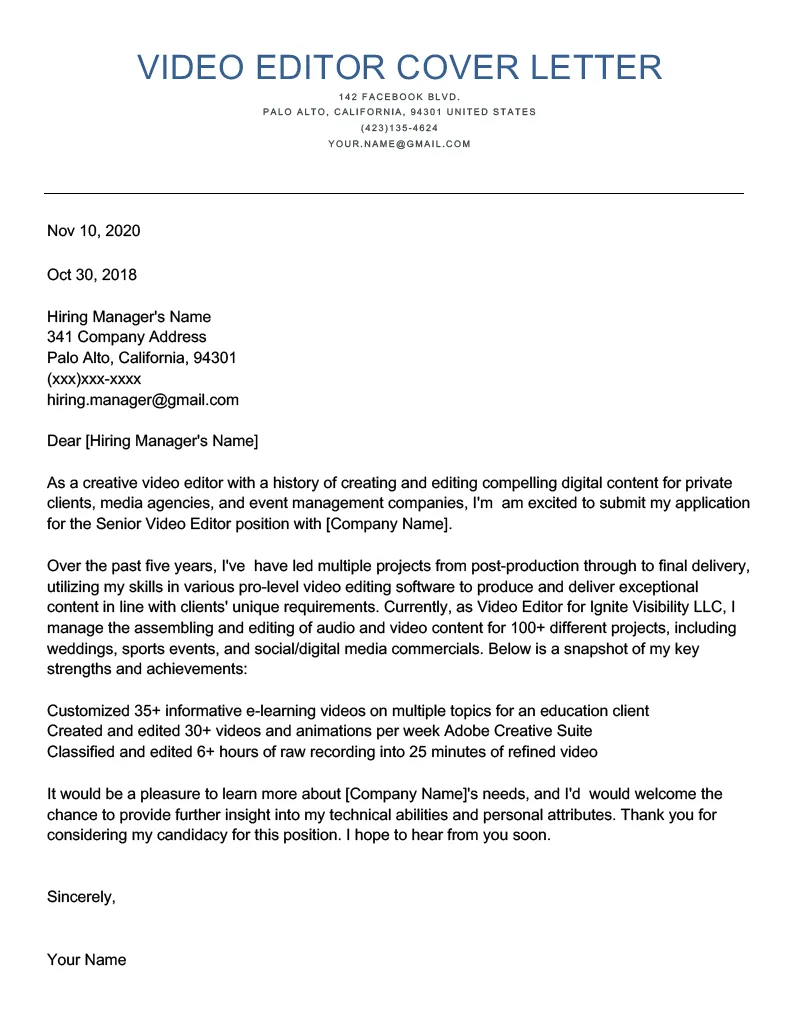
An effective cover letter highlights your relevant skills that align with the role’s requirements. It’s not enough to list your skills; you must provide specific examples of how you’ve utilized them in past performances. Did you master a specific accent? Are you proficient in stage combat? Did you receive accolades for your character work? Use the cover letter to elaborate on these skills and showcase their value. Doing this provides a more comprehensive understanding of your capabilities beyond the basic details of your resume, and it shows how you can enhance the project. Always correlate your skills to the needs of the specific role.
Showcasing Experience
Your acting cover letter offers a unique opportunity to showcase your acting experience in a way that your resume cannot. Instead of simply listing credits, use the letter to provide context. Briefly describe the nature of your roles, the types of projects you’ve worked on, and the directors or companies you’ve collaborated with. If you have experience in a certain genre, medium (film, stage, television), or style, highlight it. If the role requires specific experience, make sure to emphasize that in the letter. This allows the casting director to quickly grasp the breadth and depth of your experience, giving them confidence in your suitability for the role.
Expressing Enthusiasm
Enthusiasm can set you apart from other applicants. Expressing your genuine interest in the role, the project, and the company or production team can significantly impact your chances of securing an audition. Explain why you are drawn to the character, the script, or the overall project. Show them that you’ve done your homework, that you understand the project’s essence, and that you are passionate about contributing to its success. Showing excitement helps you make a connection with the casting director or agent, and it makes them want to bring you into the team. Remember to be sincere and authentic in your expression of excitement.
Key Components of an Acting Cover Letter
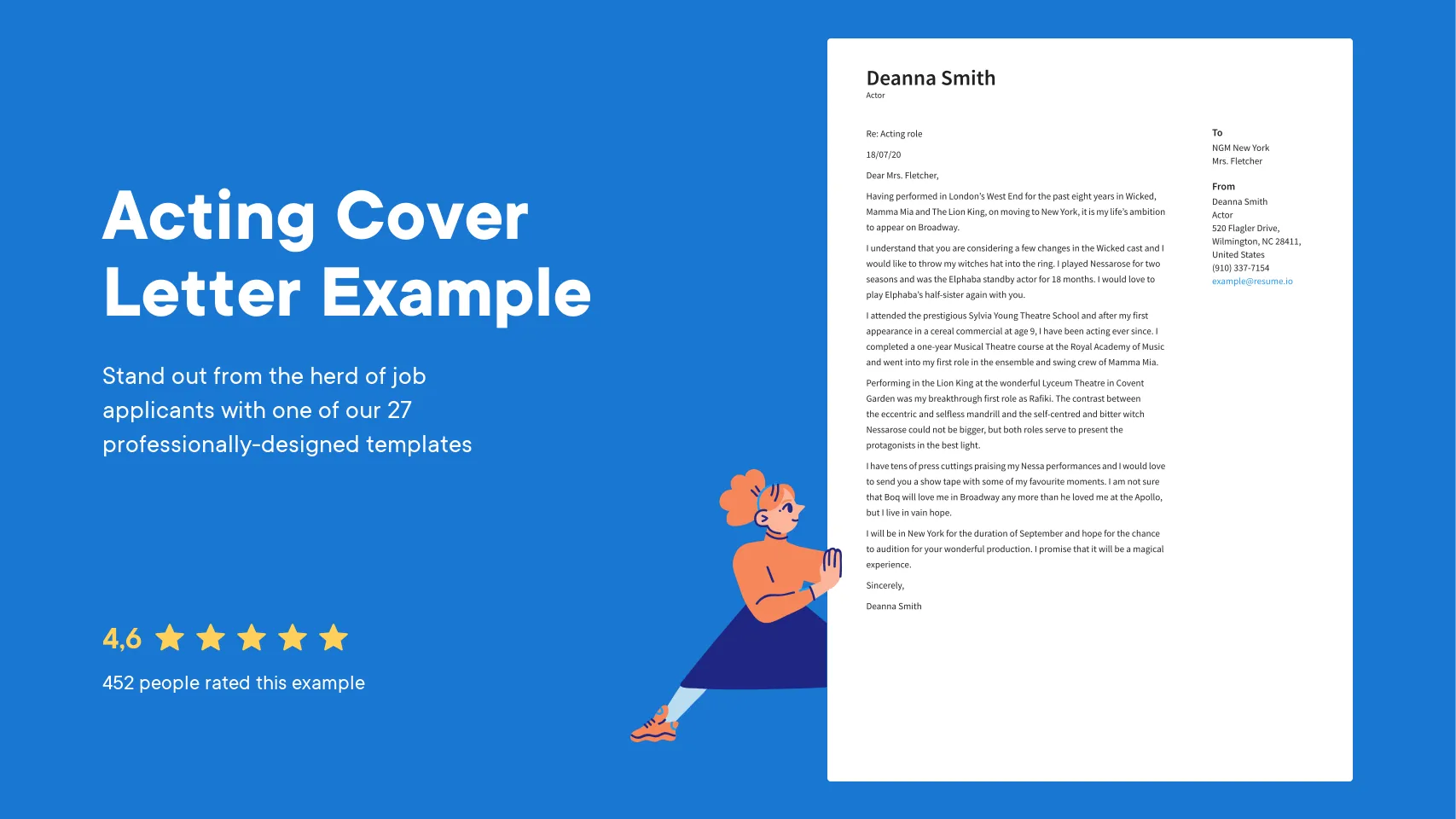
A well-structured acting cover letter includes several key components that, when combined, offer a comprehensive overview of your qualifications and suitability for the role. Each component contributes to making a positive impression and encourages the reader to learn more about you. By carefully crafting each section, you can maximize your chances of getting an audition and ultimately securing the role.
Contact Information
At the top of your acting cover letter, clearly state your contact information, including your full name, phone number, email address, and, if applicable, your agent’s contact information. This ensures that the casting director or agent can easily reach you if they decide to offer you an audition. Make sure the contact information is accurate and up-to-date. Your email address should be professional-sounding. Presenting this information at the beginning makes it easy for the recipient to connect with you.
Personal Introduction
Begin your letter with a concise and engaging personal introduction. This section should state your name and the role or project you are applying for. If you were referred by someone, mention the referral. Indicate where you saw the casting notice. From the start, grab the reader’s attention with a brief, engaging statement that highlights your enthusiasm for the project or role. The introduction sets the tone for the rest of the letter, and it should immediately convey your professionalism and interest in the opportunity. It is crucial to leave a positive first impression.
Skills and Experience Summary
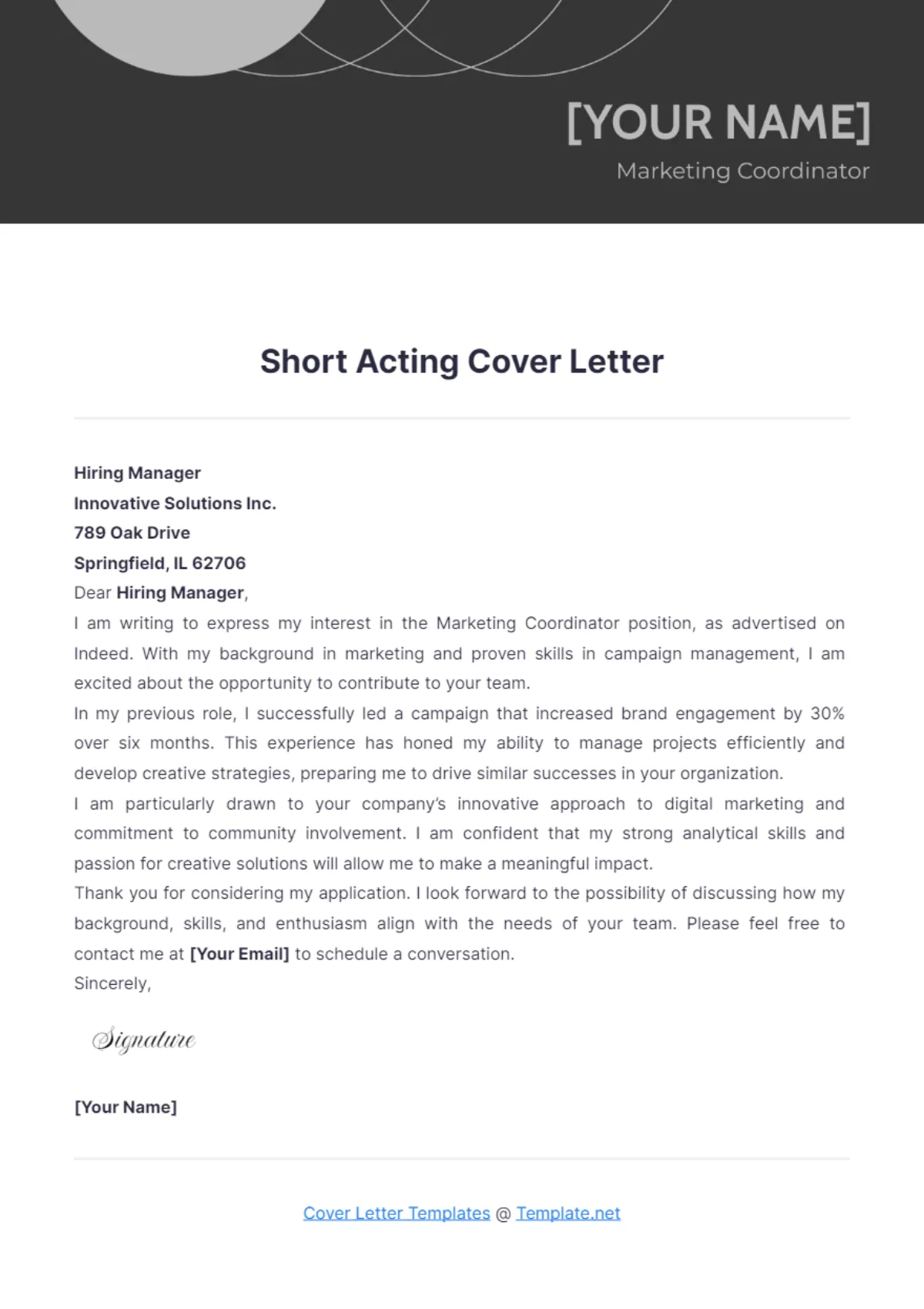
This section is where you showcase your relevant skills and experience, highlighting the qualities that make you a suitable fit for the role. Briefly summarize your most relevant acting credits, training, and any special skills (e.g., accents, stage combat, musical instruments) that the role requires or that set you apart from other actors. Quantify your achievements whenever possible. For example, mention awards, nominations, or specific training. Tailor this section to align with the specific requirements outlined in the casting notice. Provide clear, concise details about your experience and skills.
Why You’re a Good Fit
In this section, explain why you believe you are the ideal candidate for the role. This involves connecting your skills, experience, and personality with the specific requirements and attributes of the character. Demonstrate that you understand the character’s motivations, the project’s themes, and the director’s vision. Provide a specific example of how your past experiences have prepared you for this role. This is your chance to show how your unique qualities align with the role and how you will bring value to the project. Doing the research helps make a case for your candidacy.
Call to Action
Conclude your cover letter with a clear call to action. Express your eagerness for an audition and reiterate your enthusiasm for the role or project. Thank the casting director or agent for their time and consideration. State that you look forward to hearing from them. A strong call to action motivates the recipient to take the next step and contact you. Always provide a professional and proactive closing statement that highlights your availability and eagerness to collaborate.
Formatting and Structure
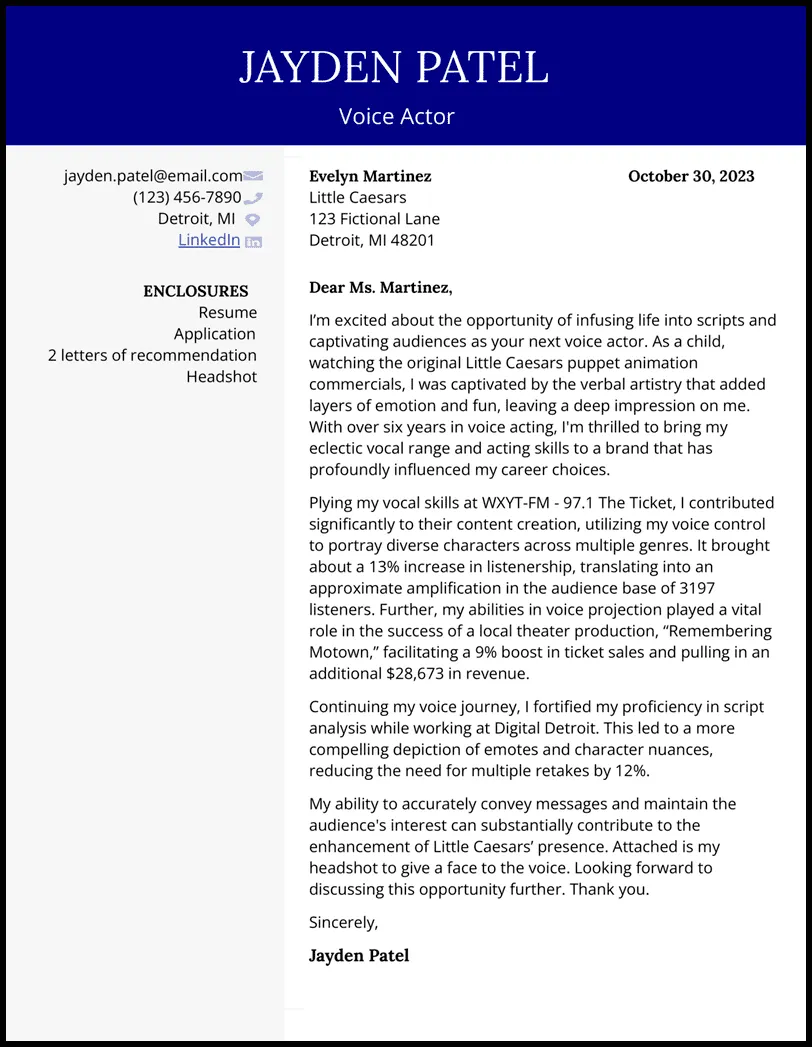
Formatting and structure play a critical role in the effectiveness of your acting cover letter. A well-formatted letter is easy to read, conveys professionalism, and enhances your chances of capturing the reader’s attention. Ensure a clear, concise, and visually appealing layout. The layout should make the key information immediately accessible.
Font and Readability
Choose a professional and readable font, such as Times New Roman, Arial, or Calibri. The font size should be between 10 and 12 points. Use a consistent font throughout the letter. Ensure the font is easy on the eyes and helps create a professional appearance. Avoid using overly decorative fonts that can detract from the content. The aim is to make it effortless for the recipient to read and absorb the information quickly. Good readability ensures your message is easily understood.
Length and Tone
Keep your cover letter concise, ideally within one page. Focus on the most relevant information. Use a professional and enthusiastic tone throughout the letter. Avoid being overly casual or informal, yet remain engaging. Address the casting director or agent by name if possible, and tailor the tone to fit the project or role. The tone should reflect both your personality and the nature of the opportunity. The right tone demonstrates your understanding of professional standards.
Proofreading and Editing
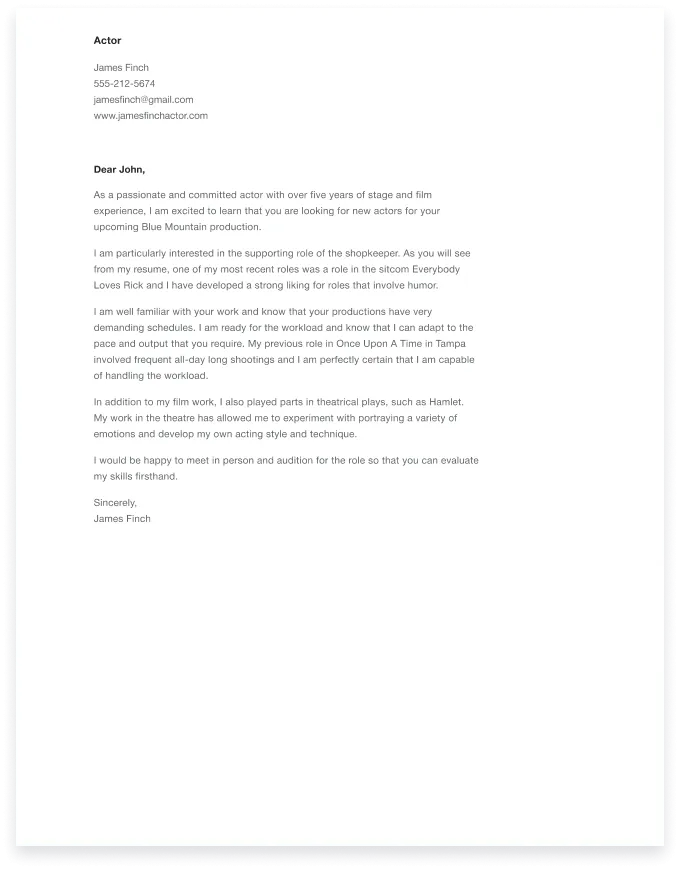
Proofread your cover letter meticulously for any typos, grammatical errors, or inconsistencies. Errors can undermine your credibility. Ensure proper grammar, punctuation, and sentence structure. Ask someone else to review your letter. Before sending your letter, review your letter carefully. These errors can damage your chances. A polished cover letter shows attention to detail and a commitment to excellence. Good editing removes flaws and shows that you are committed to the role.
Common Mistakes to Avoid
Several common mistakes can negatively impact your acting cover letter and reduce your chances of getting an audition. Being aware of these pitfalls will help you create a stronger, more effective document. Paying attention to these details can help you present yourself in the best possible light.
Generic Letters
Avoid using generic cover letters that are not tailored to the specific role or project. Casting directors can tell when a letter is not personalized, which makes you seem less invested. Always research the role and customize your letter to demonstrate your understanding of the project’s specifics and your suitability for the role. Each cover letter should be created for the specific opportunity. Generic letters are often discarded, as they fail to demonstrate a genuine interest in the role.
Typos and Grammatical Errors
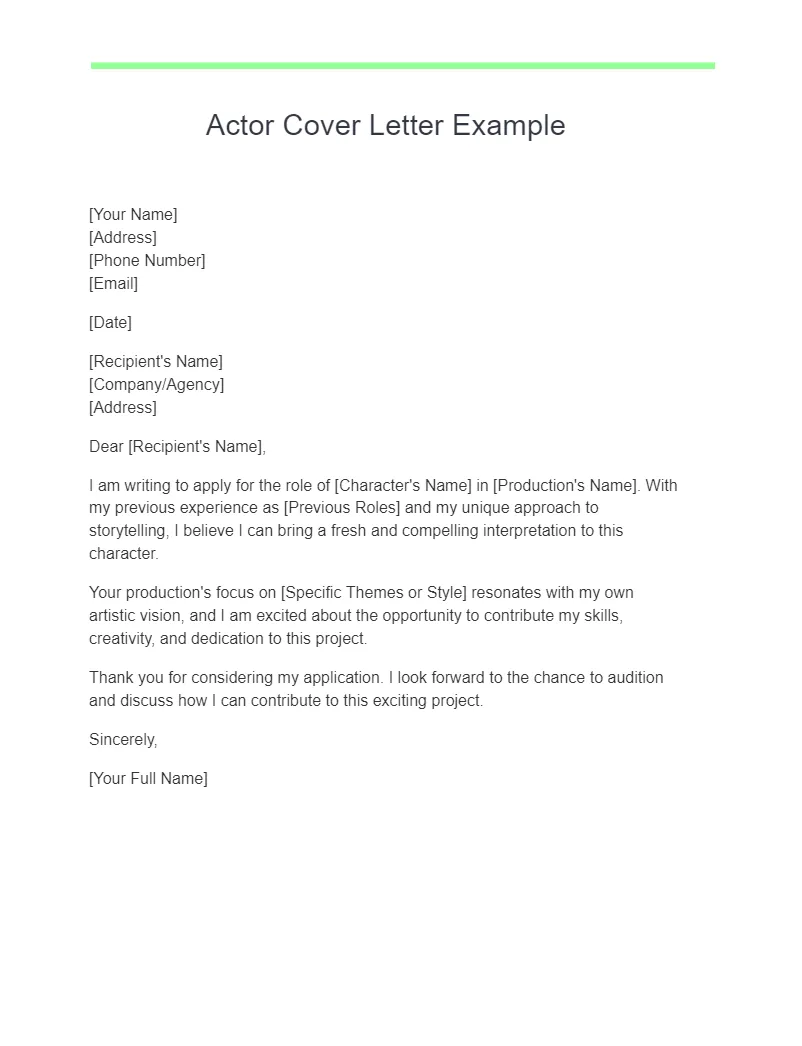
Typos and grammatical errors can create a negative impression and damage your credibility. Proofread your letter carefully before submitting it. Spelling errors and grammatical mistakes can make you appear unprofessional and inattentive to detail. Make sure all words are correct and use proper grammar. These errors can distract the reader from your skills and experience. A polished letter shows that you care about the opportunity.
Lack of Personalization
Failing to personalize your cover letter is another common mistake. Address the casting director or agent by name. Demonstrate that you have researched the project and understand its requirements. Explain why you are interested in the specific role and how your skills align with the character’s traits and needs. Personalization shows that you genuinely care about the opportunity. Non-personalized letters often indicate a lack of interest. Make sure your letter is tailored to the specific role.
Examples of Effective Acting Cover Letters
To effectively illustrate how to write a stellar cover letter, let’s look at some examples. These examples will cover different types of projects, and the format, tone, and content will be specifically tailored to the needs of the role. These samples provide a starting point for you to create your own, customized letter.
Example 1 Theater
Dear [Casting Director Name], I am writing to express my keen interest in the role of [Character Name] in [Play Title]. Having seen [Director’s Name]’s work on [Previous Play], I am deeply impressed by their ability to bring depth to complex characters. My experience in stage acting, including [Number] productions at [Theater Name], has equipped me with the skills to embody this role effectively. I have experience with classical theatre, and my ability to perform [Specific Skills] perfectly aligns with the role requirements. I am eager to contribute to this project and bring [Character Name] to life on stage. I have attached my resume for your review and welcome the opportunity to audition. Thank you for your time. Sincerely, [Your Name].
Example 2 Film
Dear [Agent Name], I am writing to express my interest in the role of [Character Name] in the film [Movie Title]. The character of [Character Name] resonates with my experience. My work in [Similar Role in Previous Film] prepared me with the discipline and depth to convey the necessary complexity. My experience in film, including [Mention Specific Credits], has given me valuable experience in on-camera acting. I am very proficient in [Mention skills], and I would be thrilled to bring [Character Name] to life. My resume is attached. Thank you for your consideration. Sincerely, [Your Name].
Example 3 Television
Dear [Casting Director Name], I am writing to express my interest in auditioning for the role of [Character Name] in the TV series [Show Title]. I was captivated by the character, and I was particularly drawn to the [Mention specific character trait]. I have been a fan of the series for many years and was very excited to see this role. My experience in television, including [Mention TV series and role], has given me a strong foundation in TV acting. I am particularly experienced in [Mention specific skills] and my experience makes me an excellent fit for this role. I am eager to audition. I have attached my resume for your consideration. Thank you for your time and consideration. Sincerely, [Your Name].
Tips for Customization
Customization is key to creating an effective acting cover letter. Taking the time to research the role and the project is crucial. This preparation will help you tailor the letter to match the specific requirements and tone of the project. Tailoring your cover letter will make it more compelling and increase your chances of an audition.
Researching the Role and Company
Before writing your cover letter, research the role and the company or production team. Understand the character’s traits, the project’s themes, and the director’s vision. Learn about the company’s previous work, their values, and their creative style. The more you know about the role and the project, the better you can tailor your letter to highlight your suitability. Showing you’ve done your homework demonstrates interest and professionalism. Research allows you to frame your experience within the context of the project.
Tailoring Your Letter
Once you have researched the role and the company, tailor your cover letter to address the specific requirements and preferences. Use keywords from the casting notice, highlight your relevant skills and experience, and explain why you are the best fit for the role. Ensure your letter reflects the tone and style of the project. Tailoring your letter will demonstrate that you understand the project’s essence. Use language that matches the project’s tone, highlighting the qualities the casting director seeks.
Adding Personality and Flair
While maintaining a professional tone, add personality and flair to your cover letter to make it stand out from the crowd. This could involve incorporating a brief anecdote, sharing your unique perspective, or expressing your genuine enthusiasm for the role or project. Demonstrating your personality helps create a memorable impression and makes you stand out. Do not hesitate to let your passion shine through, as the casting director wants to get to know you. Adding personality is all about expressing your unique voice and perspective.
Conclusion
An effective acting cover letter is a powerful tool that can significantly increase your chances of securing an audition and ultimately landing a role. By understanding its purpose, key components, and the common mistakes to avoid, you can create a compelling cover letter that showcases your skills, experience, and personality. Research the role, customize your letter, and add personality to make a lasting impression. Use the examples provided to create your own version, and remember to always proofread and edit carefully. Following these steps, you will be well-prepared to create a cover letter that opens doors and brings you closer to your acting goals. Good luck.
